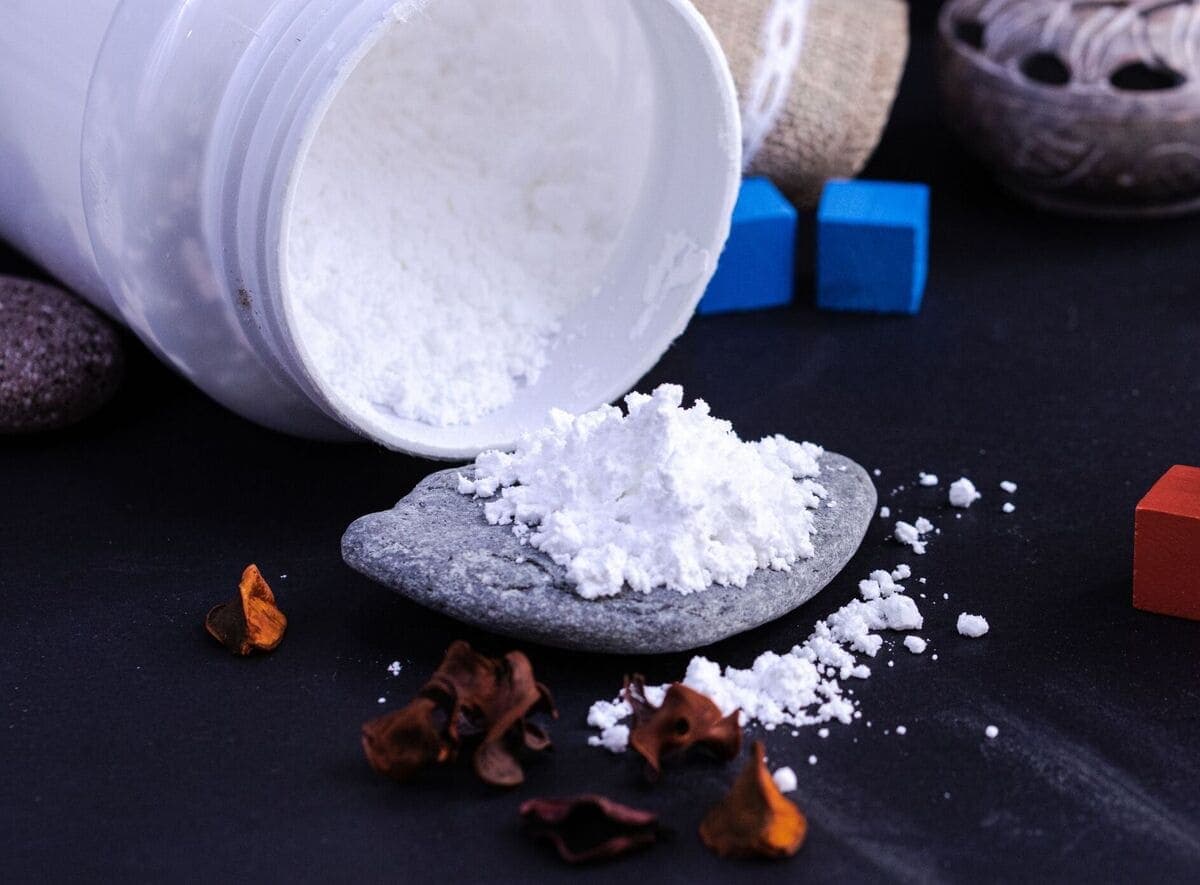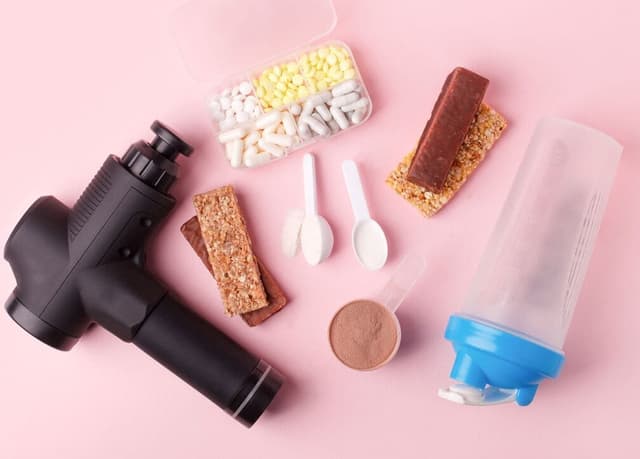Creatine for Women: Debunking Myths and Highlighting Benefits

May 16, 2024
In the world of fitness and nutrition, creatine has long been hailed as a powerhouse supplement, predominantly associated with male athletes and bodybuilders. However, the narrative is shifting as more women discover the best creatine options tailored to their unique physiology and fitness goals. Whether you're a seasoned athlete or just embarking on your fitness journey, understanding the role of creatine can empower you to make informed decisions. In this comprehensive guide, we’ll debunk common myths surrounding creatine for women and highlight its myriad benefits, ensuring you have all the information you need to incorporate this supplement effectively into your regimen.
Understanding Creatine: What It Is and How It Works
Creatine is a naturally occurring compound found in small amounts in certain foods and synthesized by the body, primarily in the liver, kidneys, and pancreas. It plays a crucial role in energy production, particularly during high-intensity, short-duration exercises like weightlifting and sprinting. By increasing the availability of adenosine triphosphate (ATP), creatine enhances your muscles' ability to perform, recover, and grow.
Why Creatine is Essential for Women
While creatine is often marketed towards men, women can reap substantial benefits from its supplementation:
- Enhanced Muscle Strength and Performance: Studies have shown that women who supplement with creatine experience significant improvements in muscle strength and overall performance.
- Improved Recovery: Creatine aids in faster recovery post-exercise, reducing muscle soreness and fatigue.
- Bone Health: Emerging research suggests that creatine may support bone density, which is particularly beneficial for women at risk of osteoporosis.
- Cognitive Benefits: Beyond physical performance, creatine has been linked to improved cognitive functions, including memory and mental fatigue resistance.
Incorporating the best creatine into your fitness routine can thus support a holistic approach to health and performance.
Debunking Common Myths About Creatine for Women
Despite its proven benefits, creatine supplementation for women is often clouded by misconceptions. Let’s address and debunk some of the most prevalent myths:
Myth 1: Creatine Causes Weight Gain and Bloating
One of the most common concerns is that creatine leads to unwanted weight gain and bloating. While it’s true that creatine can cause a slight increase in water retention within muscles, this is typically minimal and should not be confused with fat gain. In fact, the weight gain is often a sign of increased muscle mass and improved hydration of muscle cells, both of which are beneficial for performance and overall health.
Myth 2: Creatine is Only for Bodybuilders and Athletes
Creatine’s benefits extend beyond bodybuilding and high-intensity sports. Women engaged in various forms of exercise, including endurance sports like running and cycling, can benefit from creatine’s ability to enhance energy production and reduce fatigue. Additionally, creatine supports everyday activities by improving muscle strength and function.
Myth 3: Creatine is Unsafe for Women
Creatine has been extensively studied and is considered safe for long-term use when taken as recommended. The fears surrounding kidney damage or other health issues are largely unfounded, especially in healthy individuals. However, it’s always advisable to consult with a healthcare professional before starting any new supplement regimen.
Myth 4: Creatine Will Make Women Look Bulky
Another prevalent myth is that creatine will lead to excessive muscle growth, resulting in a bulky appearance. Women typically have lower levels of testosterone compared to men, making significant muscle hypertrophy unlikely. Instead, creatine helps in achieving a toned and strong physique without unwanted bulk.
By dispelling these myths, women can approach creatine supplementation with confidence, understanding its true benefits and safety profile.
Choosing the Best Creatine: A Practical Guide
Selecting the best creatine supplement can be overwhelming given the myriad of options available. Here’s a practical guide to help you make an informed choice:
1. Types of Creatine
- Creatine Monohydrate: The most researched and widely used form. It’s highly effective, affordable, and readily available.
- Creatine HCl: Known for better solubility and absorption, reducing the likelihood of bloating.
- Creatine Ethyl Ester: Claimed to have better bioavailability, though research is mixed.
- Buffered Creatine: Designed to reduce stomach discomfort, though evidence on its superiority is limited.
For most women, creatine monohydrate remains the best creatine option due to its proven efficacy and cost-effectiveness.
2. Purity and Quality
Look for products that offer high purity levels, free from unnecessary fillers and additives. Certifications from third-party testing organizations like NSF or Informed-Choice can ensure quality and safety.
3. Micronized vs. Non-Micronized
Micronized creatine has smaller particles, enhancing its solubility in liquids and making it easier to mix. This can improve absorption and reduce the gritty texture often associated with creatine monohydrate.
4. Flavor and Form
Our Top Recommendations

Optimum Nutrition Micronized Creatine Monohydrate Powder
Micronized for easy mixing, supports muscle growth and endurance.
See on Amazon$0.35 per 5g serving

Nutricost Creatine Monohydrate Micronized Powder
Third-party tested, non-GMO, 5g of pure creatine per serving.
See on Amazon$0.2 per 5g serving

NSF Certified, supports muscle power and recovery.
See on Amazon$0.46 per 5g serving

ProMix Creatine Monohydrate Powder
Micronized, additive-free, ideal for performance and recovery.
See on Amazon$0.36 per 5g serving

NOW Foods Sports Nutrition Unflavored
100% pure creatine, GMP certified, boosts strength and endurance.
See on Amazon$0.2 per 5g serving
Creatine supplements come in various forms, including powders, capsules, and chewables. Powders are typically more versatile and economical, allowing you to mix them with your favorite beverages. Choosing a flavor-free option can also make it easier to incorporate into smoothies and other recipes without altering the taste.
5. Dosage and Serving Size
Most creatine supplements recommend a daily dose of 3-5 grams. Ensure that the product you choose aligns with this standard dosage and offers convenient serving sizes to simplify your supplementation routine.
6. Customer Reviews and Brand Reputation
Research customer reviews and choose reputable brands known for their transparency and quality. Brands that invest in research and development are more likely to offer effective and reliable products.
Recommended Products
While there are many options available, some of the best creatine supplements for women include:
- Optimum Nutrition Micronized Creatine Monohydrate: Renowned for its purity and effectiveness.
- Transparent Labs StrengthSeries Creatine HMB: Combines creatine with HMB for enhanced muscle support.
- Kaged Muscle CreaClear: A micronized creatine monohydrate with improved solubility.
Maximizing the Benefits of Creatine: Tips and Best Practices
To fully harness the benefits of creatine, consider the following practical advice and actionable steps:
1. Proper Dosage and Timing
- Loading Phase (Optional): Some individuals choose to start with a loading phase of 20 grams per day, split into 4 doses, for 5-7 days to saturate muscle stores quickly.
- Maintenance Phase: After the loading phase, or if you prefer to skip it, a daily dose of 3-5 grams is sufficient to maintain elevated creatine levels.
- Timing: While creatine can be taken any time of day, some research suggests taking it post-workout with a protein or carbohydrate-rich meal can enhance uptake and effectiveness.
2. Stay Hydrated
Creatine draws water into muscle cells, so it’s essential to maintain adequate hydration. Aim to drink at least 8-10 glasses of water daily, especially when supplementing with creatine.
3. Combine with a Balanced Diet
Creatine works best when combined with a well-rounded diet rich in proteins, carbohydrates, and healthy fats. Ensure you’re consuming enough nutrients to support your overall fitness and health goals.
4. Consistent Use
For optimal results, consistency is key. Incorporate creatine into your daily routine, even on rest days, to maintain elevated levels in your muscles.
5. Monitor Your Progress
Track your performance, strength gains, and how your body responds to creatine. Adjust your dosage or timing if necessary, and consult with a healthcare professional if you experience any adverse effects.
6. Combine with Other Supplements
Creatine can be effectively combined with other supplements like protein powder, BCAAs, and multivitamins to support comprehensive fitness and health goals. However, avoid excessive supplementation to prevent potential nutrient imbalances.
Sample Supplementation Schedule
- Morning: 3-5 grams of creatine mixed with your morning smoothie or beverage.
- Post-Workout: Another 3-5 grams if you’re doing a loading phase, otherwise stick to the daily dose.
- Hydration: Ensure consistent water intake throughout the day.
Conclusion
Creatine is a versatile and powerful supplement that offers numerous benefits for women, from enhanced muscle strength and performance to improved recovery and bone health. By debunking common myths and understanding the true advantages of creatine, women can confidently incorporate this supplement into their fitness routines. When choosing the best creatine, prioritize quality, purity, and suitability to your personal fitness goals. Remember to follow best practices for dosage and hydration to maximize the benefits.
Embracing creatine as part of your supplementation strategy can lead to significant improvements in both your physical performance and overall well-being. Ready to elevate your fitness journey? Explore our range of top-rated creatine supplements and start experiencing the benefits today!






